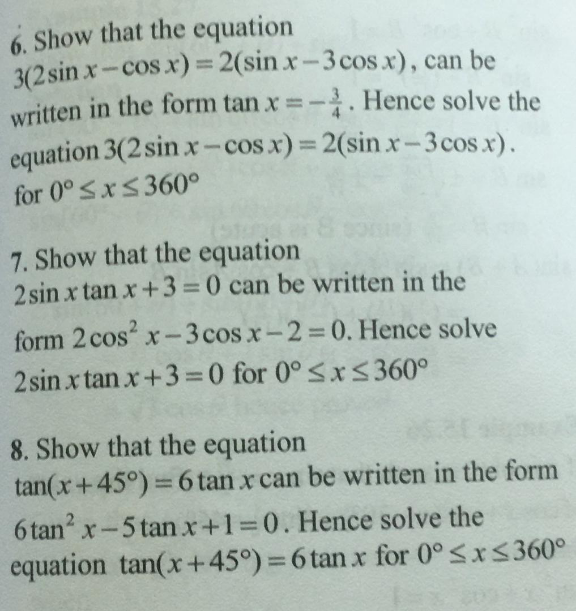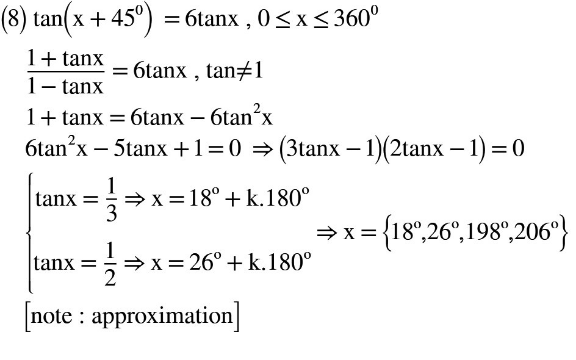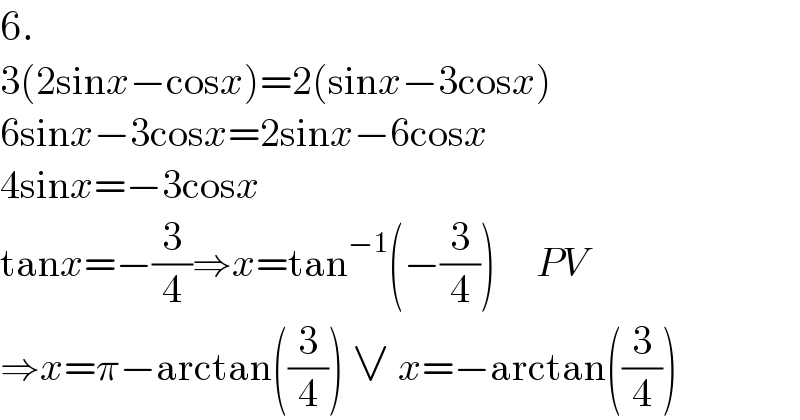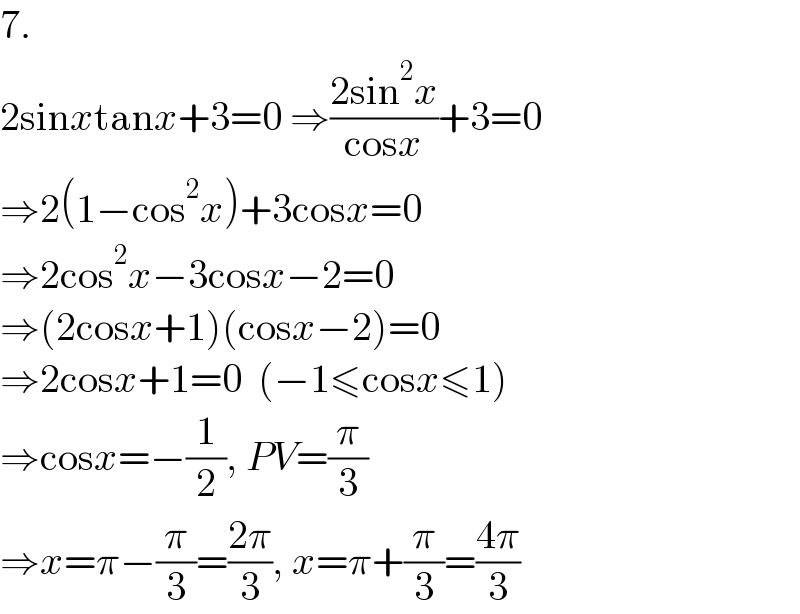Question Number 174790 by MathsFan last updated on 11/Aug/22

Commented by MathsFan last updated on 11/Aug/22

$$\mathrm{any}\:\mathrm{help}? \\ $$
Answered by cortano1 last updated on 11/Aug/22

Answered by Ar Brandon last updated on 11/Aug/22

$$\mathrm{6}. \\ $$$$\mathrm{3}\left(\mathrm{2sin}{x}−\mathrm{cos}{x}\right)=\mathrm{2}\left(\mathrm{sin}{x}−\mathrm{3cos}{x}\right) \\ $$$$\mathrm{6sin}{x}−\mathrm{3cos}{x}=\mathrm{2sin}{x}−\mathrm{6cos}{x} \\ $$$$\mathrm{4sin}{x}=−\mathrm{3cos}{x} \\ $$$$\mathrm{tan}{x}=−\frac{\mathrm{3}}{\mathrm{4}}\Rightarrow{x}=\mathrm{tan}^{−\mathrm{1}} \left(−\frac{\mathrm{3}}{\mathrm{4}}\right)\:\:\:\:\:{PV} \\ $$$$\Rightarrow{x}=\pi−\mathrm{arctan}\left(\frac{\mathrm{3}}{\mathrm{4}}\right)\:\vee\:{x}=−\mathrm{arctan}\left(\frac{\mathrm{3}}{\mathrm{4}}\right) \\ $$
Answered by Ar Brandon last updated on 11/Aug/22

$$\mathrm{7}. \\ $$$$\mathrm{2sin}{x}\mathrm{tan}{x}+\mathrm{3}=\mathrm{0}\:\Rightarrow\frac{\mathrm{2sin}^{\mathrm{2}} {x}}{\mathrm{cos}{x}}+\mathrm{3}=\mathrm{0} \\ $$$$\Rightarrow\mathrm{2}\left(\mathrm{1}−\mathrm{cos}^{\mathrm{2}} {x}\right)+\mathrm{3cos}{x}=\mathrm{0} \\ $$$$\Rightarrow\mathrm{2cos}^{\mathrm{2}} {x}−\mathrm{3cos}{x}−\mathrm{2}=\mathrm{0} \\ $$$$\Rightarrow\left(\mathrm{2cos}{x}+\mathrm{1}\right)\left(\mathrm{cos}{x}−\mathrm{2}\right)=\mathrm{0} \\ $$$$\Rightarrow\mathrm{2cos}{x}+\mathrm{1}=\mathrm{0}\:\:\left(−\mathrm{1}\leqslant\mathrm{cos}{x}\leqslant\mathrm{1}\right) \\ $$$$\Rightarrow\mathrm{cos}{x}=−\frac{\mathrm{1}}{\mathrm{2}},\:{PV}=\frac{\pi}{\mathrm{3}} \\ $$$$\Rightarrow{x}=\pi−\frac{\pi}{\mathrm{3}}=\frac{\mathrm{2}\pi}{\mathrm{3}},\:{x}=\pi+\frac{\pi}{\mathrm{3}}=\frac{\mathrm{4}\pi}{\mathrm{3}} \\ $$
